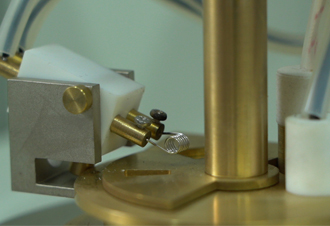 English
English



-
 Afrikaans
Afrikaans -
 Albanian
Albanian -
 Amharic
Amharic -
 Arabic
Arabic -
 Armenian
Armenian -
 Azerbaijani
Azerbaijani -
 Basque
Basque -
 Belarusian
Belarusian -
 Bengali
Bengali -
 Bosnian
Bosnian -
 Bulgarian
Bulgarian -
 Catalan
Catalan -
 Cebuano
Cebuano -
 China
China -
 China (Taiwan)
China (Taiwan) -
 Corsican
Corsican -
 Croatian
Croatian -
 Czech
Czech -
 Danish
Danish -
 Dutch
Dutch -
 English
English -
 Esperanto
Esperanto -
 Estonian
Estonian -
 Finnish
Finnish -
 French
French -
 Frisian
Frisian -
 Galician
Galician -
 Georgian
Georgian -
 German
German -
 Greek
Greek -
 Gujarati
Gujarati -
 Haitian Creole
Haitian Creole -
 hausa
hausa -
 hawaiian
hawaiian -
 Hebrew
Hebrew -
 Hindi
Hindi -
 Miao
Miao -
 Hungarian
Hungarian -
 Icelandic
Icelandic -
 igbo
igbo -
 Indonesian
Indonesian -
 irish
irish -
 Italian
Italian -
 Japanese
Japanese -
 Javanese
Javanese -
 Kannada
Kannada -
 kazakh
kazakh -
 Khmer
Khmer -
 Rwandese
Rwandese -
 Korean
Korean -
 Kurdish
Kurdish -
 Kyrgyz
Kyrgyz -
 Lao
Lao -
 Latin
Latin -
 Latvian
Latvian -
 Lithuanian
Lithuanian -
 Luxembourgish
Luxembourgish -
 Macedonian
Macedonian -
 Malgashi
Malgashi -
 Malay
Malay -
 Malayalam
Malayalam -
 Maltese
Maltese -
 Maori
Maori -
 Marathi
Marathi -
 Mongolian
Mongolian -
 Myanmar
Myanmar -
 Nepali
Nepali -
 Norwegian
Norwegian -
 Norwegian
Norwegian -
 Occitan
Occitan -
 Pashto
Pashto -
 Persian
Persian -
 Polish
Polish -
 Portuguese
Portuguese -
 Punjabi
Punjabi -
 Romanian
Romanian -
 Russian
Russian -
 Samoan
Samoan -
 Scottish Gaelic
Scottish Gaelic -
 Serbian
Serbian -
 Sesotho
Sesotho -
 Shona
Shona -
 Sindhi
Sindhi -
 Sinhala
Sinhala -
 Slovak
Slovak -
 Slovenian
Slovenian -
 Somali
Somali -
 Spanish
Spanish -
 Sundanese
Sundanese -
 Swahili
Swahili -
 Swedish
Swedish -
 Tagalog
Tagalog -
 Tajik
Tajik -
 Tamil
Tamil -
 Tatar
Tatar -
 Telugu
Telugu -
 Thai
Thai -
 Turkish
Turkish -
 Turkmen
Turkmen -
 Ukrainian
Ukrainian -
 Urdu
Urdu -
 Uighur
Uighur -
 Uzbek
Uzbek -
 Vietnamese
Vietnamese -
 Welsh
Welsh -
 Bantu
Bantu -
 Yiddish
Yiddish -
 Yoruba
Yoruba -
 Zulu
Zulu
low voltage insulation tester
Understanding Low Voltage Insulation Testers Essential Tools for Electrical Safety
In the world of electrical maintenance and testing, safety and reliability are paramount. Among the essential tools used by electrical engineers and technicians is the low voltage insulation tester. These devices play a critical role in ensuring the safety and longevity of electrical systems by measuring the integrity of insulation in various electrical components.
What is a Low Voltage Insulation Tester?
A low voltage insulation tester, often referred to as a megohmmeter, is an instrument designed to measure the resistance of electrical insulation materials. Primarily used in low voltage applications—typically under 1,000 volts—these testers assess the effectiveness of insulation in various electrical systems, such as motors, transformers, and cables. By applying a high voltage (usually between 250V and 1,000V) to the insulation, the tester measures how much current leaks through it. The result is expressed in megohms, indicating the quality and safety of the insulation.
Importance of Insulation Testing
The integrity of electrical insulation is vital for several reasons. Poor insulation can lead to short circuits, equipment failure, and even fire hazards. Insulation testing helps identify weaknesses or breakdowns in insulation before they result in dangerous situations. Regular testing also complies with safety standards and regulations set by organizations like OSHA and the National Electrical Code (NEC), ultimately safeguarding both personnel and equipment.
How Does a Low Voltage Insulation Tester Work?
The operation of a low voltage insulation tester is straightforward but crucial for obtaining accurate readings. When the device is connected to the electrical circuit, it applies a determined test voltage across the insulation under examination. The tester then measures the amount of current flowing through the insulation. By comparing this current against the applied voltage, it calculates the insulation resistance.
low voltage insulation tester

For instance, if a tester applies 500V to a circuit and finds a current of 1 microampere (µA) flowing through the insulation, it can calculate the insulation resistance to be 500 megohms. This result indicates good insulation quality, whereas significantly lower resistance values could signal an insulation failure or degradation.
Choosing the Right Low Voltage Insulation Tester
When selecting a low voltage insulation tester, consider several factors. The first is the appropriate voltage level for your specific applications; testers generally come with multiple voltage settings. Additionally, features such as insulation resistance range, automatic testing capabilities, and data logging options can enhance usability. Advanced models may include functionalities like memory storage, PC connectivity, and graphical displays for easier interpretation of results.
Best Practices for Insulation Testing
To ensure accurate and reliable results, follow these best practices
1. Preparation Ensure all equipment is powered off and disconnected from any live systems. 2. Calibration Regularly calibrate your tester to maintain accuracy. 3. Environmental Factors Consider environmental conditions such as humidity and temperature, as they can affect insulation resistance readings. 4. Documentation Keep detailed records of all tests performed, including date, location, results, and any observations. This documentation is essential for future reference and compliance with safety standards.
Conclusion
Low voltage insulation testers are invaluable tools in ensuring electrical safety and reliability. With the growing complexity of electrical systems, regular testing of insulation integrity is necessary to prevent failures and ensure compliance with safety regulations. By understanding how to effectively utilize these instruments, electrical professionals can enhance the safety and efficiency of their operations, safeguarding both personnel and equipment from potential electrical hazards. Whether you are an experienced technician or new to the field, familiarity with insulation testing will significantly contribute to your expertise in electrical maintenance.
-
Testing Equipment Industry Sees Major Advancements in 2025: Smart & Precision Technologies Lead the WayNewsJun.06,2025
-
Applications of Direct Current Generators in Renewable Energy SystemsNewsJun.05,2025
-
Hipot Tester Calibration and Accuracy GuidelinesNewsJun.05,2025
-
Digital Circuit Breaker Analyzer Features and BenefitsNewsJun.05,2025
-
Benefits of Real-Time Power Quality Monitoring Devices for Industrial EfficiencyNewsJun.05,2025
-
Earth Fault Loop Testing in High-Rise Building Electrical SystemsNewsJun.05,2025



